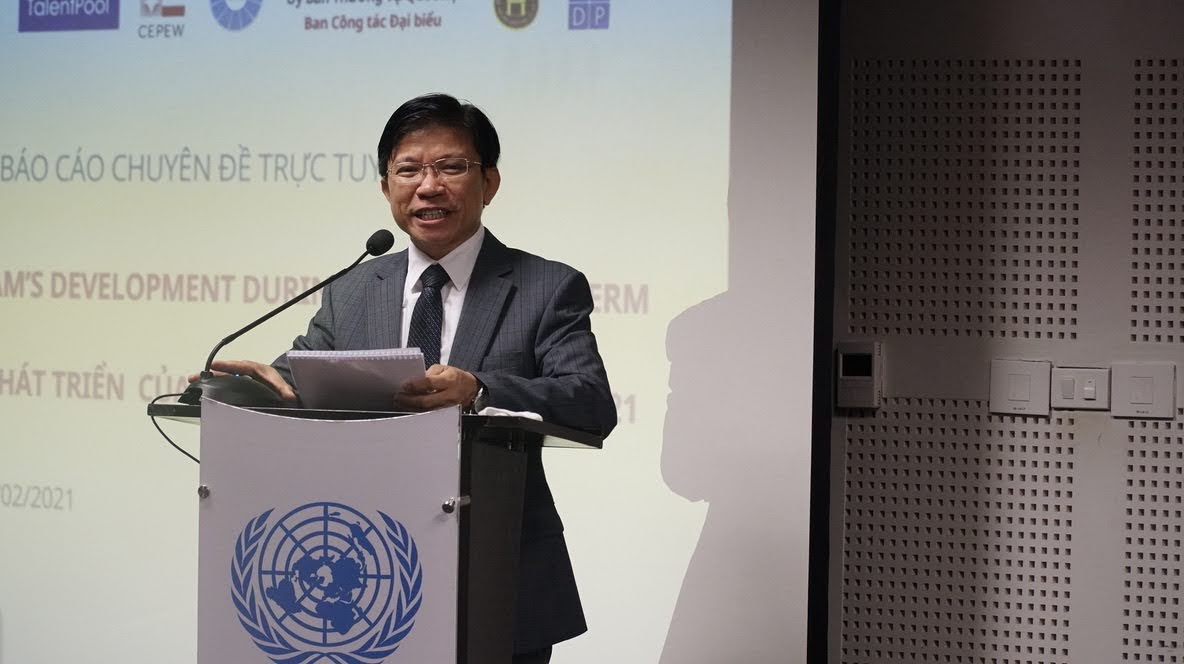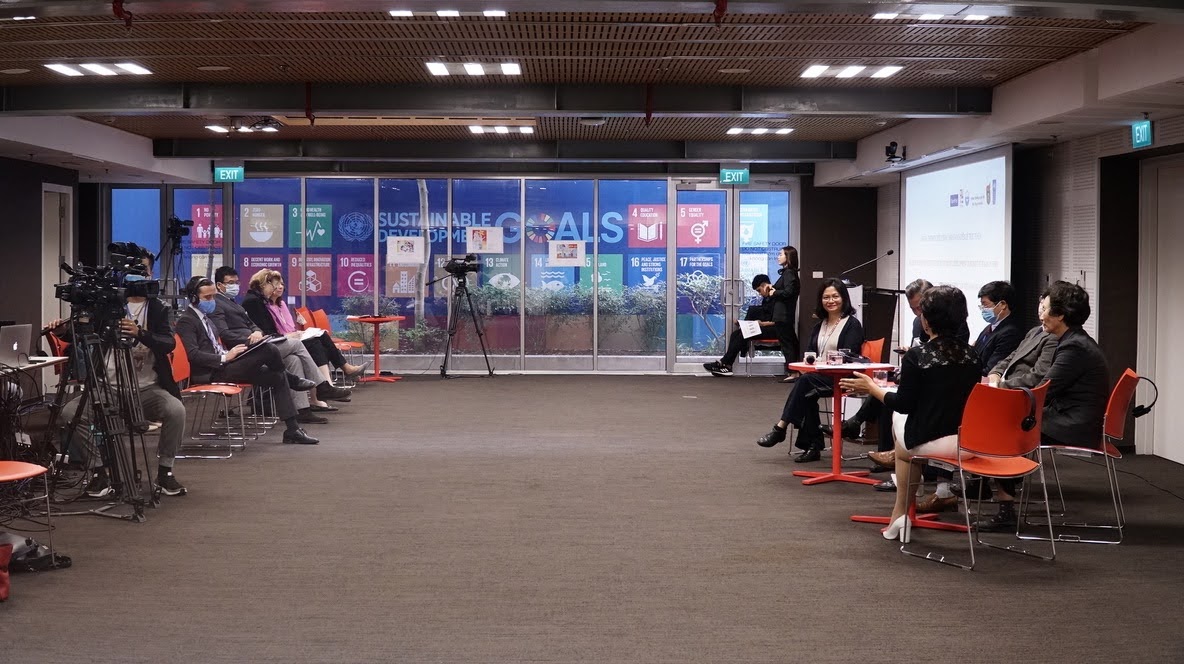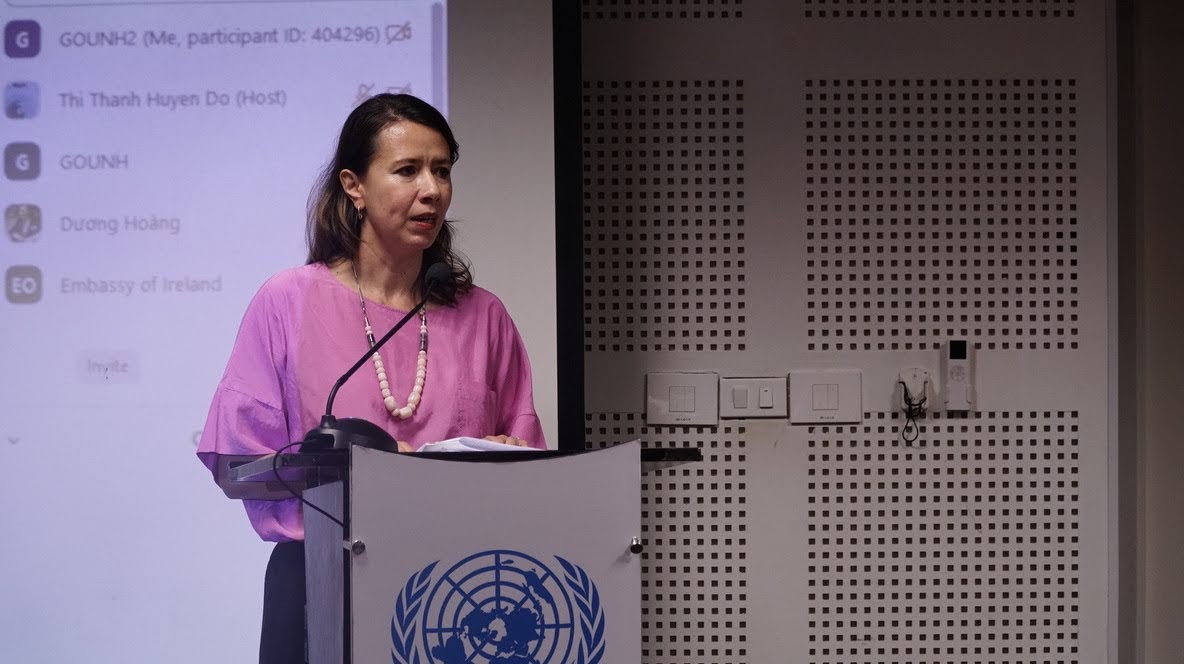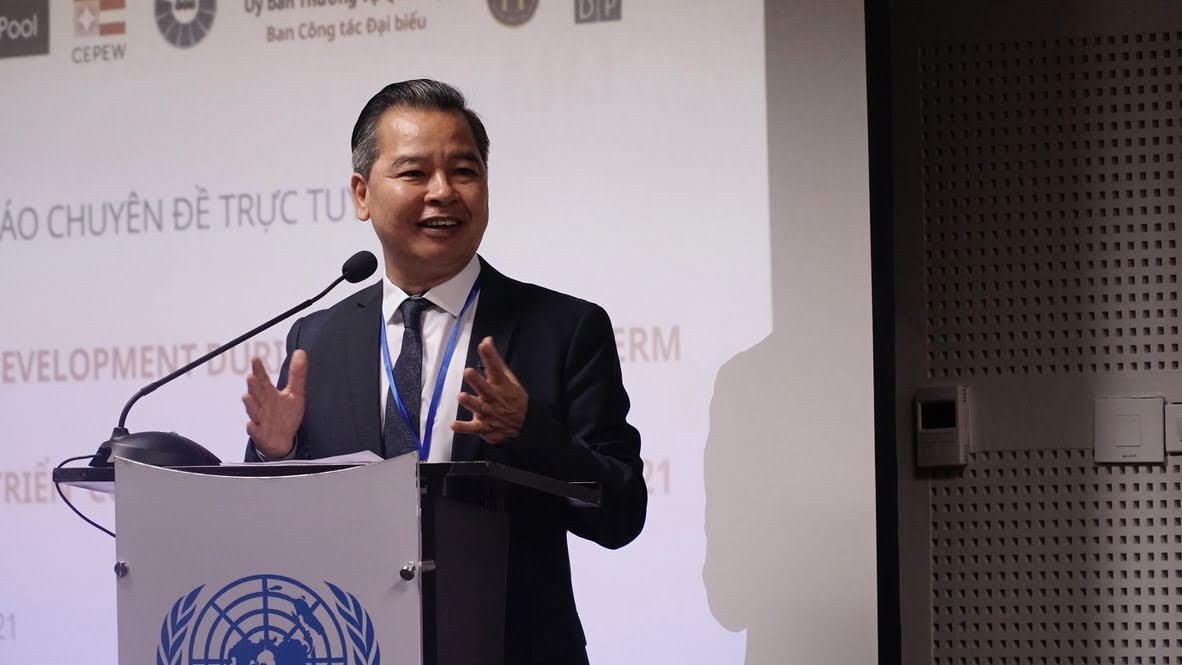The latest study by the University of Social Sciences and Humanities (USSH), Viet Nam National University in Hanoi, the United Nations Development Programme (UNDP) in Viet Nam, and other partners has confirmed the important roles of women National Assembly delegates in Viet Nam’s development during the 2016-2021 term.

Prof.Dr Hoang Anh Tuan (Vice Director in charge of USSH) speaks at the Seminar
With funding from the Australian Government’s Department for Foreign Affairs and Trade (DFAT), the Irish Embassy Vietnam and UNDP Vietnam, through the Provincial Governance and Public Administration Performance Index (PAPI) research framework, the timely study provides empirical evidence of how women have contributed socially, economically and politically to the country’s progress over the past five years. This is an important foundation for society and voters to have stronger confidence in women candidates in the 2021 National Elections.

Mr. Robin Bednall
“We learned in 2020 that women, across the world, have shouldered particular and acute burdens due to COVID 19, and so today’s focus on women’s competence, contribution, visibility and voice couldn’t be more timely,” said Mr.Robin Bednall, Acting Counsellor, Economic and Development Cooperation, Australian Embassy Vietnam.
During the 2016-2021 term, the National Assembly has its first female chairperson and 26.7 percent female representation. UNDP’s global Human Development Report 2020 ranked Vietnam 65th out of 162 countries and among the top third of countries globally for women’s share of seats in parliament.

The study, “Roles of Women Representatives in Viet Nam’s Development During The 2016-2021 Term”, shows that women perform equally well as men across all main functions and duties. Men National Assembly delegates are more proactive in meeting voters, however, women delegates more frequently engage with voters via social networking applications than men delegates. In their action plans, women delegates pay more attention to the fields of education and training; health; culture; sport and tourism; ethnicity; labor, invalids, and society; and religion and faith than men delegates. There is no significant difference between women and men delegates in the amount of time they spend on performing their delegates’ roles and mandates nor in the response rates in handling petitions and proposals from voters during this term.

In terms of value and competence measures, women delegates value ‘having fair and reasonable statements’ and ‘having the ability to persuade others’ more than men delegates. Voters’ interest in their own constituency is the most important factor influencing both women and men delegates when voicing opinions about a specific issue. Also, voters‘ expectations in their own constituency is the most important factor influencing both men and woman delegates when on duty. Women and men delegates agree that women delegates perform better in education and healthcare, and labor and employment.

Ms. Elisa Cavacece
“PAPI has been a powerful tool for the Government of Viet Nam to capture feedback on how policy and public services have been delivered and benefited its citizens. And we appreciate that gender has been increasingly a focus for this PAPI initiative,” said Ms. Elisa Cavacece, Deputy Head of Mission/Head of Development, the Embassy of Ireland. “The soft launch of the research findings today is a useful platform for the Embassy of Ireland to support and engage, in order to promote gender equality and women’s empowerment. These are key thematic priorities of the Embassy in the process of building the partnerships with Vietnamese government, multi-lateral organizations and civil societies”.
It is perception and social biases that stand in the way of achieving the resolution No. 26 of 7th Plenum of the 12th Party Central Committee for women participation in National Assembly and People Council. The Study recommends accelerating implementation of the resolution No. 26 that put it that by 2030: ’there must be women representatives in the Standing Committee of the Party at provincial level and Party committees at all levels, the proportion of women representatives at all levels should be between 20 and 25%. The rates of women representatives in the National Assembly and People’s Councils should be over 35%”.

Prof.Dr Pham Quang Minh
According to Prof. Dr. Phạm Quang Minh (USSH), the Research Team Lead, “Most of the National Assembly delegates interviewed think that there will come a time when the number of female and male delegates in the National Assembly is equal. It is important to join hands to create an enabling environment for female delegates to realize their potential".
The study also recommends creating favorable conditions for National Assembly delegates of all genders to proactively engage with voters via all channels, making use of social networking channels; and giving women delegates equal representation in all fields by promoting gender parity in all National Assembly committees.

Mrs. Caitlin Wiesen
“Women’s equal representation in leadership and decision-making at all levels, in both public and private sectors, is essential for realizing Viet Nam’s socio-economic development vision and key to equitable development that Leaves No One Behind,” UNDP Resident Representative Caitlin Wiesen noted. “UNDP is looking forward to continuing to work with our development partners and the National Assembly towards closing the gender gap, both qualitatively and quantitatively - not only getting more women in elected positions, but also supporting them to be effective when they get elected.”
Reader Comments
Newer articles
Older articles